Green Economy
Throughout the value chain, from extraction to recycling, companies in the aluminum industry in Brazil have evolved in managing sustainability, in such a way as to walk down the green economy path in a more organized manner.
According to the United Nations Environment Programme (UNEP), a Green Economy, in general, must have low carbon emissions, be efficient in using resources and be socially inclusive, while preventing biodiversity loss.
Companies in the aluminum chain understand that competitiveness and growth are increasingly dependent on a business strategy that includes important aspects of sustainability, such as governance, risk management, social responsibility, transparency and efficiency with respect to the use of natural resources. They demonstrate this by investing in the installed capacity of their plants, which are committed to preserving the environment, and generating social benefits for their employees, the communities where they operate and society.
To assist companies in their sustainability challenges as they move towards a Green Economy, in 1981 ABAL created the Environmental Committee, which in 1998 included in its duties the sustainability theme, and in 2009, added the Working Group on Climate Change.
Aluminium for future generations
The global aluminum industry is engaged in the “Aluminium for Future Generations” program led by the International Aluminium Institute (IAI) that fosters a path to sustainable development for the industry, by improving the performance of some of the economic, social and environmental indicators.
They correspond to twelve voluntary goals whose progress is measured by way of 22 environmental and economic performance indicators, which companies report to the IAI, which then consolidates and publishes them on annual basis. The IAIâs participating companies make up 70% of global aluminum production.





